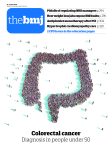
John Launer: Focusing on capabilities in frailty, not just deficits
The word “frailty” once had the same meaning for doctors as it still does for the public. It summoned up an image of an emaciated older person, probably bent over, hobbling along with the aid of sticks.
Over time, the term has acquired a more technical meaning for the medical profession. It has come to refer to an attribute of people with multiple infirmities—something that can be measured on various kinds of scales with prognostic value, offering pointers to the required level of care. Few doctors nowadays won’t have seen a geriatrician demonstrating the concept with the use of a Jenga tower, pulling out wooden bricks representing different medical conditions until removal of the final one (symbolising a fall or a chest infection) causes the edifice to collapse into a heap.
I know how helpful this professional usage of the word “frailty” can be. For a while I facilitated meetings of a frailty team in primary care. I was impressed by how members categorised patients in the community in a systematic and validated way, assigning them to appropriate services and liaising across multiprofessional boundaries.
At the same time, I felt sympathetic to critiques that have been widely offered about the term. These include the inconsistency of different measurement scales, as well as the negative or stigmatising implications of the word itself. Personally, I dislike any technical expression that may carry upsetting connotations for patients. I’ve often inveighed against the word “failure” to denote a decline in cardiac or renal function, which can lead many with the label to fear impending death. In a similar way, calling someone “frail” may carry the risk of affecting how people see themselves—and how their carers and families relate to them.
Recently, I learnt about a way of balancing these two views. I attended a workshop on successful ageing and longevity. The facilitator talked about people resuming piano or saxophone lessons in their 80s, having never touched a musical instrument since their teens. Others had taken up swimming when they could no longer run or had learnt to play bridge when they couldn’t do either of those. The emphasis was on continuing potential rather than loss of function; on fun instead of frailty. This approach to older care is apparently getting more common—driven not only by benevolence but by the voices of older people themselves.12
It’s important to keep a sense of realism here. We shouldn’t pathologise older people by observing them only through the lens of frailty, but nor should we wear rose tinted spectacles when seeing people whose lives are irreversibly impaired. So, I wonder if we should insist that any measurement of deficits is accompanied by a list of capabilities. However short someone’s future is, it may still have possibilities. As I get older I want to be seen in terms of doors that might still open for me, not ones that have already closed.



